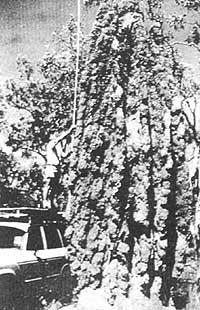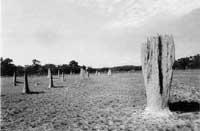Not right is science
1998/03/01 Brookes, Martin Iturria: Elhuyar aldizkaria
Imagine that you are interested in the causes of increased atmospheric concentration of methane, a major greenhouse gas. You know that termites produce a lot of methane in their stomachs. Therefore, you want to analyze whether the limitation of atmospheric methane is related to the growth of termite population on Earth. (Although this statement seems very curious, termites are an important source of atmospheric methane.)
To demonstrate this hypothesis, for several years, he performs long and tired experiments, but discovers that the termite population has not grown. You have done a weight research that has ruled out termites from the methane equation. However, he is no closer to answering his question about the cause of increased methane concentration in the atmosphere.
He has tried to publish his research, but renowned journals will not want to publish a “negative” result. The title “Termites have no responsibility in increasing methane concentration” does not appeal to: “Termiten’s guts are responsible for global warming.” If you want to publish your work, you should go to a magazine with a lower level of acceptance.
Unfortunately, to succeed in scientific research you will have to publish it in a high-level journal. For example, publication in Nature, Cell or Science (usually of honor) has important advantages. The publication in high-level journals is very prestigious. Behind the honorific level lies the relative darkness. Your work will probably be published, but few people will see the need to check the account for those terminations.
It is well known that only the most exciting and innovative research has access to the most prestigious journals. However, scientists have long suspected that research is another criterion that affects the possibilities of being published. This has been confirmed in a report by three Canadian biologists (Ryan Csada, Paul James and Richard Espie), published in the ecological magazine of the Oikos honor division.
According to the report, if you invent a scientific hypothesis, develop it experimentally and then find no statistical basis, your chances of publishing the research are scarce, at least in high-level journals. The report is based on the analysis of a random sample of 1,812 articles selected between 1989 and 1995, among research articles published in 40 biology journals with reference. Only nine percent of articles obtain “non-representative” results. Fewer if only the Honor Division journals are considered.
Publishing in prestigious magazines is not just a thing of my own self. It is also a measure of the commissions that take away money and your work. The university's science departments live in an atmosphere of terror and distress when the government has to conduct a research evaluation.
Every four years departments must submit a report that collects their research. Accordingly, departments are ranked from one to five (the lowest level). The undervalued can say goodbye to government money.
Unfortunately, scientific research, like social policy, does not always adapt well to the four-year cycle. Research evaluation activity drives the vetusticity and philosophy of “publishing in some way”. In addition, as the directors of scientific journals are unwilling to publish “non-representative” results, researchers face a fortune teller. The progress of science consists in formulating and analyzing daring hypotheses. However, a “non-representative” outcome can exhaust future sources of income.
Scientific knowledge must advance through experiments, which of course will have unpredictable results. Many experiments are rooted in observations that suggest a particular hypothesis, but if the non-discovery of evidence reduces the possibilities of publication, much of science will have no ambition. Bold hypotheses will be replaced by conservative and regular hypotheses.
The large number of “non-representative” results will be exhausted without being published in the research office cabinets. The magazine full of failed hypotheses is not attractive at all. New ideas and hypotheses make exciting science. However, while erroneous hypotheses are often regarded as disinterested, they are not insignificant, and scientific literature should more broadly admit their existence.
If journals continue to maintain current editorial policy, we are narrowing the visual field of science. If a statistical change raises the chances of an article being published, will the researcher not be tempted to make a small trap with the data? In short, your career can depend on it.

Gai honi buruzko eduki gehiago
Elhuyarrek garatutako teknologia






